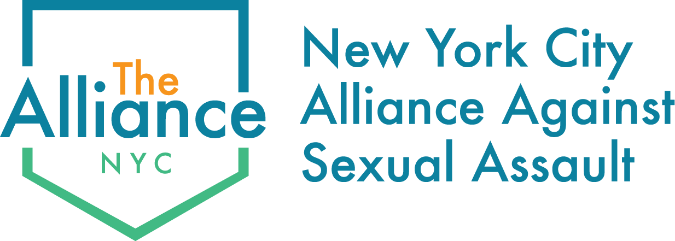General Training
About General Training & Technical Assistance
Our General Training & Technical Assistance Program helps individuals, professionals, community-based organizations (CBOs), and groups learn how to support survivors of sexual violence with care and understanding.
Our goal is to ensure that anyone in New York City — whether they directly work with survivors or simply want to learn more — has the skills and knowledge to respond to survivors in a way that is respectful, informed, and effective. This includes:
- Advocates and case managers
- Medical and mental health professionals
- Social workers
- Legal service providers
- Public prosecutors and law firms
- Law enforcement officers
- Educators and school staff
- Nonprofit and community organization staff
- Concerned individuals, student groups, and community members
We want participants to leave our trainings feeling more confident to respond to survivors, knowing where to go to make referrals, and understanding how to access resources and information to support survivors effectively. Additionally, our trainings emphasize the importance of sensitive communication, managing expectations, and recognizing implicit bias when working with survivors and the systems they interact with.
How We Deliver General Training
We offer a variety of trainings, which are interactive, practical, and based on real-world experience. We offer both standard and customized sessions that fit the needs of your organization or group. These tailored sessions ensure that participants have an impactful learning experience that is as relevant as possible to your group’s context. Whether you are looking for a general overview or an in-depth workshop on a particular aspect of survivor support, we can design a training that aligns with your goals.
Topics include:
- Understanding Sexual Violence – What it is, its impact, and how it affects survivors.
- Trauma-Informed Support – How to provide care in a way that is sensitive to the needs of survivors.
- Working with Different Communities – How to support survivors from different backgrounds, including LGBTQ+ individuals, immigrants, and people with disabilities.
- Legal and Policy Information – Understanding survivors’ rights and how laws affect their options.
- Best Practices for Service Providers – Strategies for medical, mental health, and legal professionals to support survivors effectively.
- Accessing Resources & Referrals – Ensuring participants know where to find additional resources and how to connect survivors with the right support services.
- Sensitive Communication & Expectation Management – Training on how to communicate with survivors in a way that is trauma-informed and respectful of their experiences.
- Implicit Bias Awareness – Recognizing and addressing biases that can impact survivor support and engagement with various systems.
Our Impact
In 2025, 650 sexual violence sector professionals and community members were trained to respond more effectively to survivors of sexual violence.
Here’s what participants have to say after completing a training with us:
“I enjoyed the various examples on traumas that weren’t necessarily common and that could easily be dismissed. I want to thank you for the poem and reminder that self-care is necessity and vital for the work we do.”
– Anonymous
“It was a great training! It was helpful to learn what would and wouldn’t be appropriate language to use when supporting survivors.”
-Anonymous
Get Involved
Whether you are new to this work or looking to improve your understanding, our trainings will help you develop the knowledge and skills to contribute to a survivor-supportive community.
If you or your organization want to get involved, you can request a training, join an upcoming training session or partner with us! Please reach out to Senior Prevention Coordinator, Scarlett Thompson, for any questions or more information.
Together, we can create a more informed and supportive community for survivors of sexual violence.
The New York City Alliance Against Sexual Assault’s General Training program provides trainings that are free and open to the public on a variety of topics related to sexual violence prevention and response. Examples of previous topics include “The Landscape of Sexual Violence Response Services in NYC” and “How to Respond to Disclosures of Sexual Violence”.
Fill out this optional and anonymous form to share your community input about what training topics would be most helpful in the future.
Thank You to Our Funders
The Alliance’s General Training Program is proudly supported by:



